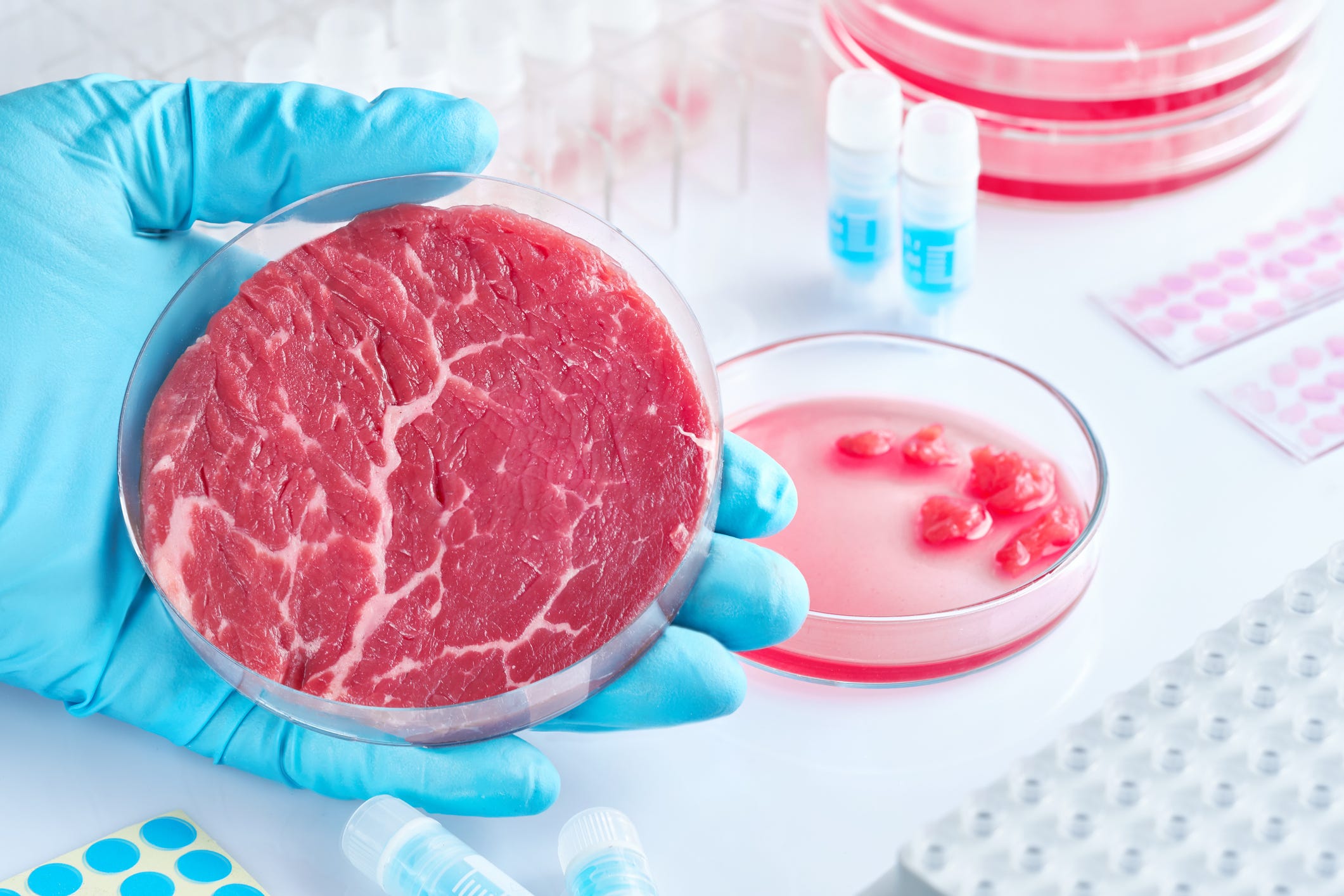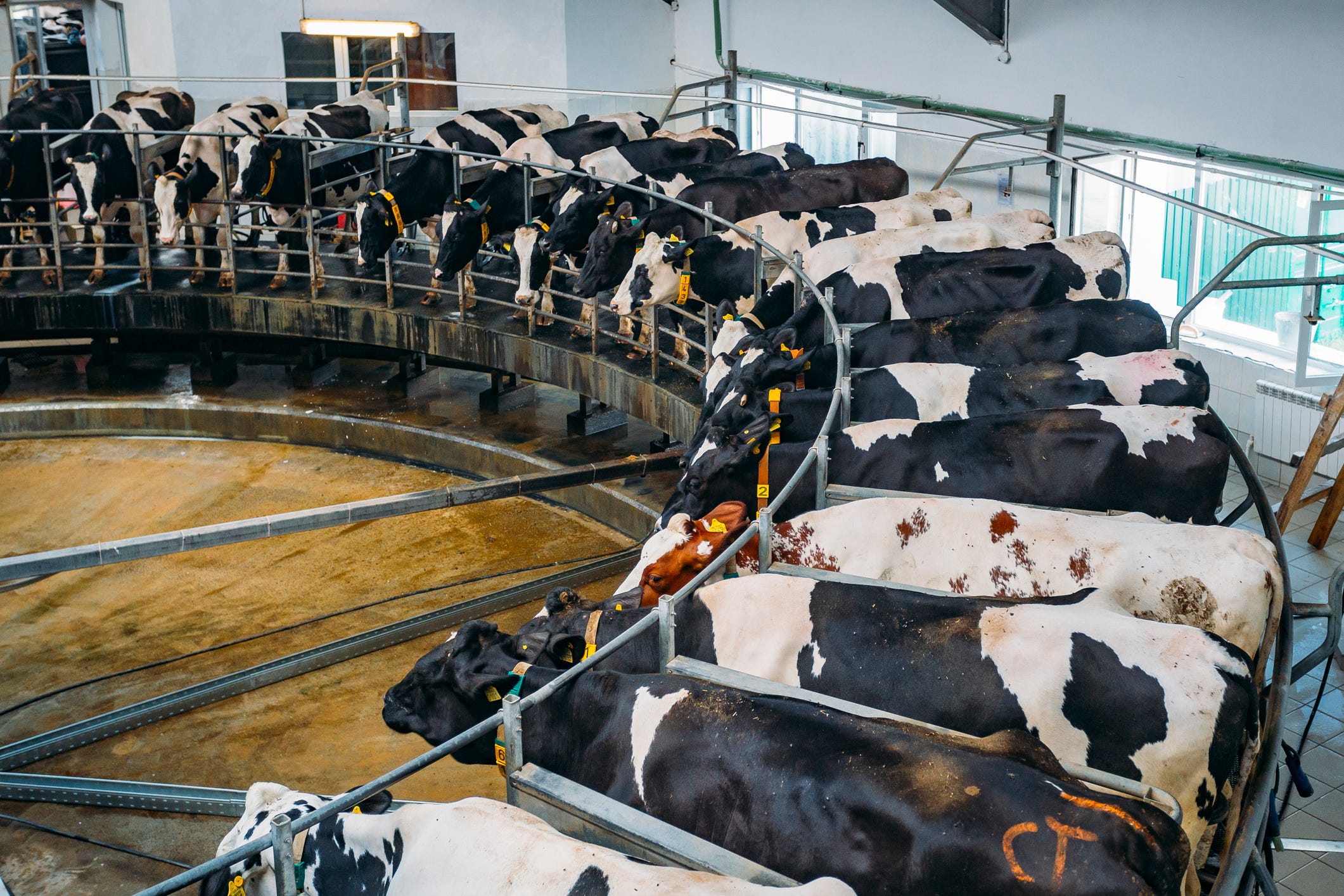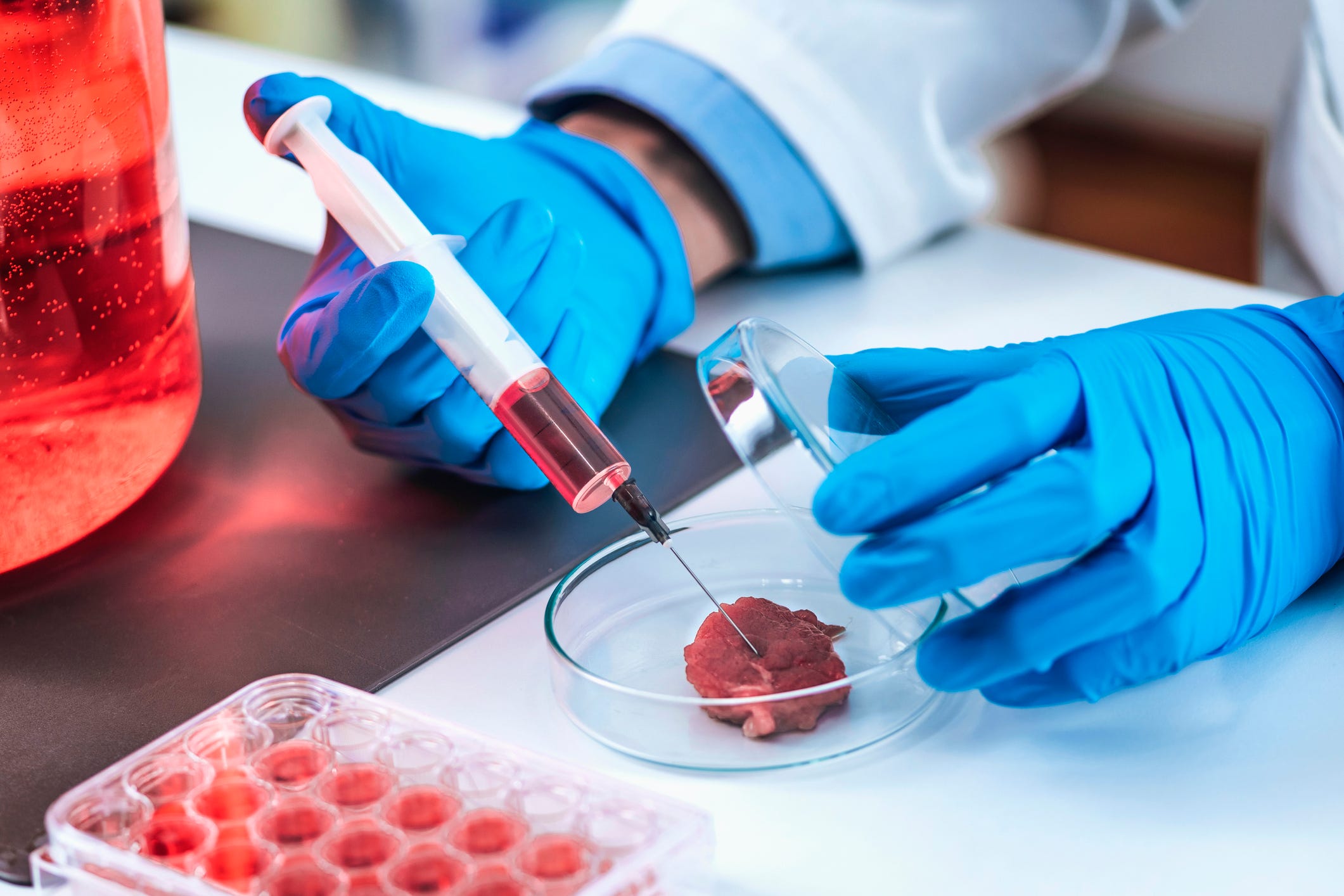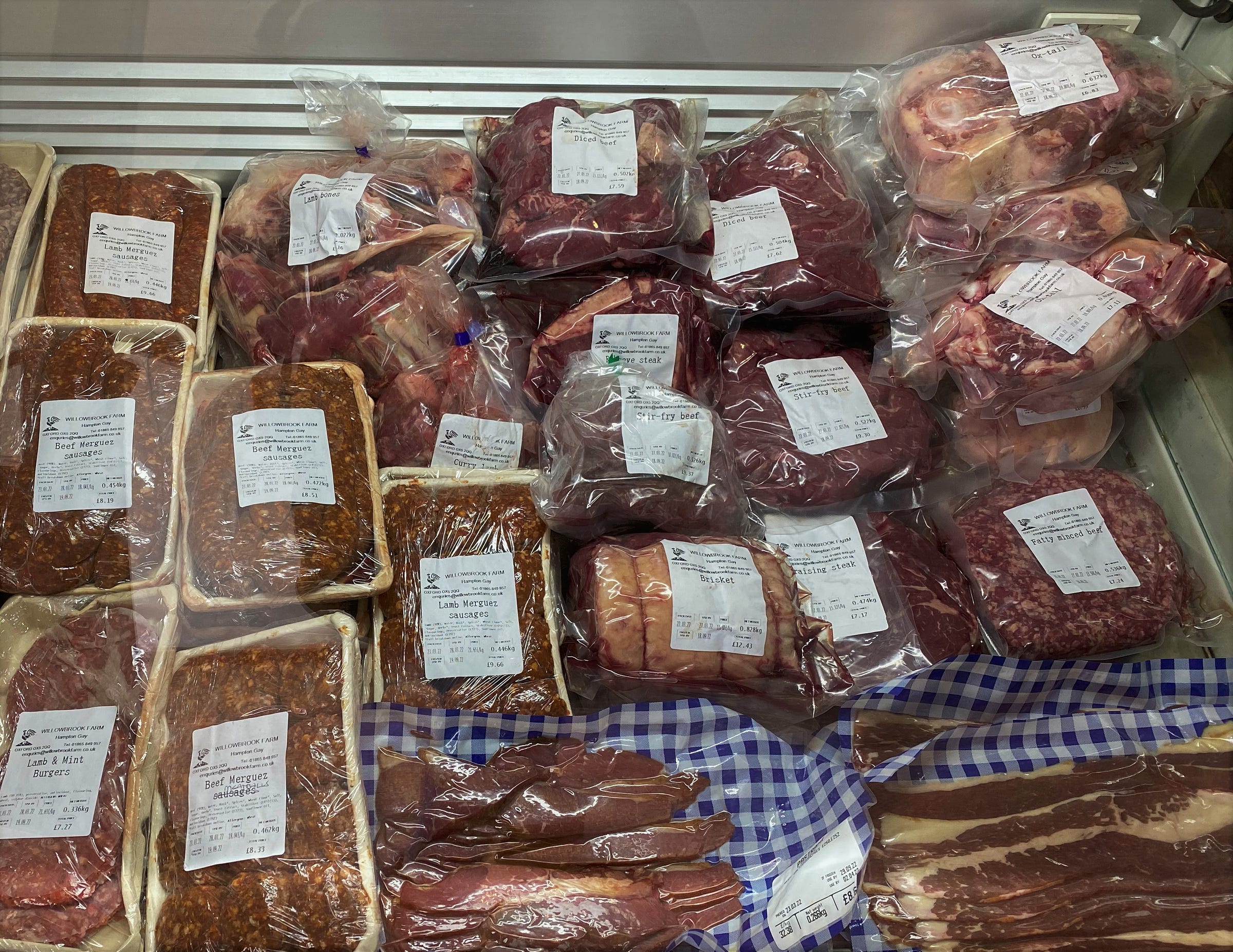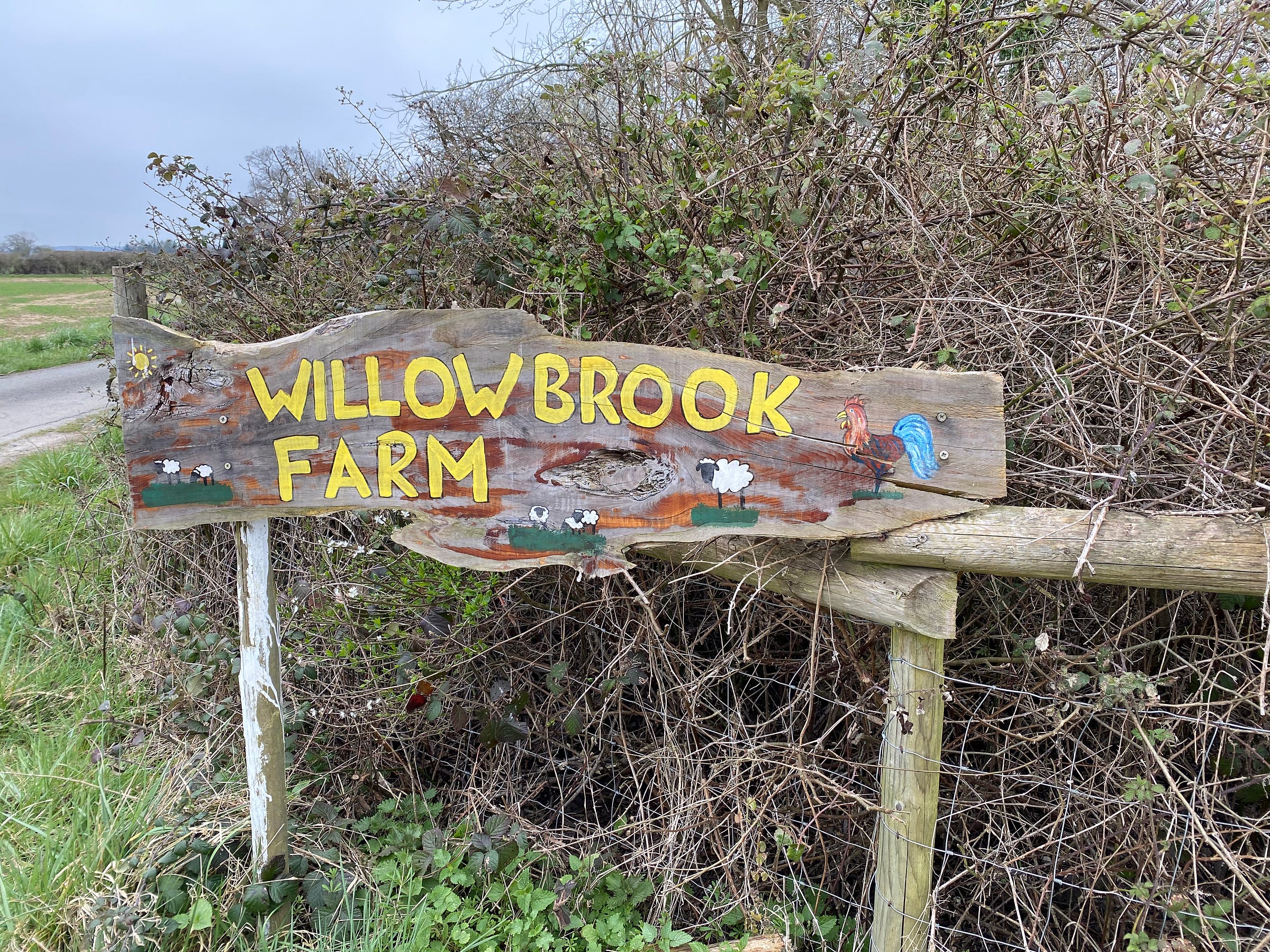Is lab-grown meat the magic formula to sustainable farming?
Cell-grown meat may seem like a sci-fi idea but it will be a mainstream reality in the UK in 2023
‘We shall escape the absurdity of growing a whole chicken in order to eat the breast or wing, by growing these parts separately under a suitable medium’, said Winston Churchill in 1931.
Advocates say lab-grown meat is set to revolutionise the farming world. But will it be a sustainable alternative to traditional farming when it is still derived from a slaughterhouse?
Chloë Payne, student of an MBA at The University of Oxford and Founder of the Oxford Alternative Protein Society believes that one of the main arguments that animals will not suffer is flawed. ‘To grow cells, lab-grown meat businesses are using foetal bovine serum, which is extracted from cows that have been killed in a slaughterhouse. If we’re extracting serum from cows to create lab-grown meat, it doesn’t really make sense’, said Chloë.
Ivy Farm Technologies, producers of lab-grown meat (who declined to provide a comment) state publicly on its website that its products are sustainable because they are producing less carbon emissions, their meat will be free from antibiotics, and it will enable the reduction of intensive animal farming with better practices. Upside Foods and Mosa Meat market themselves in a similar way.
Commenting on the public stance of cultivated meat companies, Khalil Radwan the co-manager of the Willowbrook Farm Oxford said ‘to grow meat in a lab you have to have a lot of inputs. What is the cost of those inputs? Are they sustainable and ethical?
Lab-grown meat, also known as cultured, cell-based, clean, or cultivated meat emerged in the last two decades, as result of an unsustainable population growth. The Food and Agriculture Organization of the United Nations (FAO) estimates that to feed a world population of 9.1 billion people in 2050 the overall food production should raise by some 70% between 2005/7 and 2050. Meat production would have to grow by over 200 million tonnes to a total of 470 million tonnes in 2050.
In August 2013, the first lab-grown burger was created by Professor Mark Post and his team at Maastricht University. Three years later, in 2016 the first cultivated meat company, UPSIDE Foods, launched publicly, followed by Mosa Meat which is led by Professor Mark Post. All these companies have been trying to grow and evolve to be able to join the meat industry.
The process of producing lab-grown meat consists of harvesting a small sample of cells from a living animal and cultivate the sample to grow outside the animal’s body, shaping the fully formed sample into cuts of meat. These products should have the same taste that consumers know according to charity The Human League.
The market is saturated with intensive cheap meats, there are already massive producers covering the whole sector and lab-grown meat might just do the same. This product is controversial because it might centralise the market again, no one really knows how sustainable it might be if so, many artificial inputs are involved. And consumer perception plays a big role, many consumers don’t really see the point in consuming something artificial that was made in a lab, when what they are really looking for is a healthy sustainable solution.
Upside Foods (which main product is chicken) recently opened a pilot facility and innovation centre in Emeryville, California. This place can produce 50,000 pounds of finished product per year, with the aim of producing over 400,000 pounds per year. These numbers are a significant milestone for an industry that didn’t exist seven years ago. Another big step was made by Mosa Meat, they managed to remove foetal bovine serum from their products, which is one of the biggest challenges for cultivated meat.
2023 in the UK
Ivy Farm Technologies is due to launching pork sausage in the UK in 2023, followed by Angus Beef Burgers and Wagyu meatballs. This will certainly have an impact on organic farming as well as on factory-farming. Chloë Payne expects that these products will initially go to niche consumer tastings and restaurants, and that we won’t see them on supermarket shelves anytime soon.
Even though the farming lobby is very strong in the UK, in March 2023 the Alternative Protein Association was introduced by the UK government. Lord Amer Sarfraz launched it at the parliament. They are positioning it as an opportunity to level up the country, and converting it into a biotech powerhouse effectively. ‘Once this happens they will eventually hit a wall where they are eroding farmers’ profits and the call will have to be made at that point’, said Chloë.
We do not really know what the impact in the farming business will be, but farmers have strong opinions on the topic. Kahlil Radwan the co-manager of the Willowbrook Farm in Oxford shared his expertise on the topic. ‘It would not be any more of a threat than cheap, intensive cage produced meat’, he says. ‘We already face the struggle of getting into the market when consumers are buying chickens for three pounds’.
With a small niche in the organic market Willowbrook Farm is already sustainable on a small scale. The people that buy their products aren’t consumers that would choose cell cultivated meat, as they are looking for quality sustainable products.
Consumers’ perceptions
There is a strong cultural link around the world related to meat consumption, so it will not be easy to change consumers’ minds from one day to the other. ‘Consumer perceptions need to be done incredibly carefully because if you get it wrong once, it will shift forever’, said Chloë. There’s a lot of testing going on around how to brand these products effectively. It’s about not making them seem alien.
The way consumers feel about these products is key to understanding where this might actually go. Antoine Ancone, an environmental scientist said he would consider lab-grown meat if the energy requirements and environmental impacts are lower than livestock meat and on par with plant-based alternatives. ‘However, I prefer plant-based alternatives for certain products, so going back to real meat might be difficult due to the taste of animal fat’, said Antoine.
A real sustainable solution
There are different solutions to this problem, but it is fundamental to assure that they are truly sustainable. For Khalil the key is to diversify with lots of small scale farms, and to be efficient. If you have sheep, you should also have trees, solar panels, and use manure from animals produced in-house in your garden. Make little changes that are impactful.
On the other hand, Chloë said ‘diversifying is essential. Ideally, we should have a mixture of meats, plant-based products, with a small amount of sustainable regenerative animal agriculture still happening for luxury products’.
Even though the future of farming is uncertain, there are a few scenarios that our experts have in mind. Chloë thinks there will be a transition towards more crops. ‘My hope is that it wouldn’t end up being a monocrop system where we just grow the same soybean. I desperately hope that it means that we’ll reduce farming subsidies, and we’ll transition into kind of rewilding projects and restore nature to the land’.
According to Kahlil, ‘the future of farming should be small scale farms’. Farming is one of the biggest industries around the world, their impact is clear and a change is undeniable. Farmers should not worry too much yet as lab-grown meat is still far away from being on supermarket shelves. The transition will be long and take time. The only certain fact is that lab-grown meat will be available in the UK for the first time in 2023.



